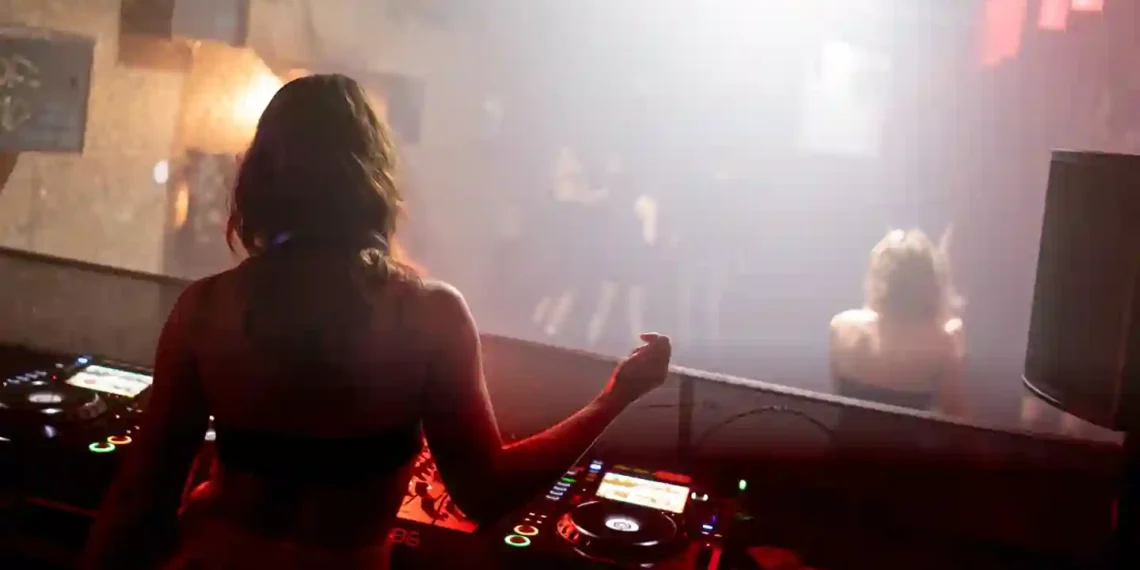Berlin’s Changing Nightlife: From Hedonistic Parties to a New Generation’s Fun
Berlin’s once-legendary status as the party capital of Europe is now being reshaped by a new wave of partygoers. At 2 a.m., the line outside Berghain, Berlin’s iconic techno club, is still long, with eager dancers hoping to slip past the notoriously selective bouncers. But Berlin’s nightlife scene isn’t the same anymore — it’s evolving, with some longtime hotspots closing their doors for good.
Wilde Renate, a quirky, multi-level club housed in an old apartment building, will shutter by the end of the year. Just across the river, Watergate, an iconic venue by the water, wrapped up its 22-year run with a final farewell party on New Year’s Eve. These closures have sparked concerns about the future of Berlin’s club culture, especially amid rising rents, gentrification, and shifting tastes. The phenomenon even has a name in German: Clubsterben, or “club death.”
Berlin’s club scene has long been a part of the city’s cultural identity. After the fall of the Berlin Wall, abandoned spaces and industrial warehouses became the backdrop for underground raves, fueling the rise of a wild, hedonistic nightlife. But as Berlin becomes more commercialized, the city’s bohemian party vibe is being replaced by higher rents and corporate interests. Young clubbers, who grew up in the shadow of the pandemic, are now looking for something different from their predecessors.
Uli Wombacher, a co-owner of Watergate, pointed out that the pandemic, which forced clubs to close for months, created a generation of clubbers who missed out on the city’s iconic party culture. “The generational leaps in this business are quick. Two and a half years of closed clubs makes a difference,” he said.
As Berlin’s nightlife has matured, so too have its partygoers. The older crowd that once dominated clubs like Berghain and Tresor now mingles with a younger, more diverse generation. But unlike their predecessors, Gen Z is looking for a different kind of fun. It’s not just about techno and all-night parties anymore. Younger revelers are shifting toward lighter, more carefree atmospheres, with a stronger focus on socializing, self-expression, and a diverse range of music.
While the classic techno sound still pulses through Berlin’s underground scene, new collectives are emerging, bringing Afrobeat, Arab electronic, and other genres into the mix. These events often cater to a broader, more inclusive crowd, with a focus on creating safer spaces and embracing diverse identities.
“I feel like people are not looking for that super serious, techno-only vibe anymore,” said Daria, 24, a Berlin native. “We want to go out, enjoy ourselves, dance, but without the pressure of fitting into a certain mold.”
Rising rents and the cost of living in Berlin have made clubbing a more expensive pursuit, especially for younger people. Entry fees at popular venues have skyrocketed from €10-15 to €20-30, making nights out a luxury for many. “It’s becoming harder to go out when you can’t afford the drinks or the entrance,” Daria added.
Some are even starting to shy away from the mainstream club scene, seeking out alternative venues and underground raves, which remain more affordable. “It’s not so easy for working-class kids anymore. The scene is now more for the upper classes,” said Aziz Sarr, a DJ and organizer in the city.
However, Berlin’s nightlife isn’t disappearing — it’s just changing. The rise of smaller, grassroots collectives is proof that Berlin’s subculture still thrives, even if it looks a bit different now.
Some of Berlin’s well-known clubs are evolving to keep up with the changing times. Suicide Circus, a staple for over 30 years, recently rebranded as Lokschuppen and is now hosting younger, more diverse events. And venues like MAAYA, founded by Aziz Sarr and Ukai Ndame, focus on celebrating African music and culture while providing a space for diverse communities to come together and party.
“Berlin has become much more diverse, you can see that,” said Sarr. “There’s a party for every scene now, and that’s what makes it so exciting.”
Berlin’s club scene may be facing challenges, but its resilience is undeniable. For many, the city remains a mecca for partygoers seeking freedom of expression and a sense of belonging. Despite the gentrification and rising costs, the underground scene is finding new ways to thrive, with more inclusive, community-driven events on the rise.
Ultimately, Berlin’s nightlife will continue to evolve, but the heart of its party culture — the sense of rebellion, acceptance, and creativity — will likely remain. As younger generations shape the future of Berlin’s clubs, the city’s reputation as a place for alternative, diverse fun will likely endure, even as it looks very different from the hedonistic days of the past.
“Berlin’s nightlife has always been about escapism and freedom,” said Gejic, a spokesperson for the Berlin Club Commission. “Even if the scene changes, that spirit will remain.”
This article was rewritten by JournosNews.com based on verified reporting from trusted sources. The content has been independently reviewed, fact-checked, and edited for accuracy, neutrality, tone, and global readability in accordance with Google News and AdSense standards.
All opinions, quotes, or statements from contributors, experts, or sourced organizations do not necessarily reflect the views of JournosNews.com. JournosNews.com maintains full editorial independence from any external funders, sponsors, or organizations.
Stay informed with JournosNews.com — your trusted source for verified global reporting and in-depth analysis. Follow us on Google News, BlueSky, and X for real-time updates.













